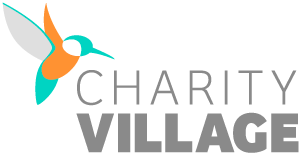Writing grants is a highly sought-after skill in many nonprofits, and can be overwhelming for those just getting started. Grant writing requires a strategic approach to knowledge and demands more than just a compelling idea. In this article, I’ll delve into the dos and don’ts of grant writing and provide a basic oversight that will be helpful for those newer to the grant writing process.
Dos:
Read and understand the guidelines
The first step to a successful grant is making sure that you have read and understand the guidelines of the grant. Each grant will have its own unique set of expectations and requirements, so make sure you read the qualifications and instructions carefully and follow them accordingly. Attention to detail is paramount.
Research the funder
You’ll want your grant writing to appeal to the organization or company you’re seeking the grant from. To be successful, you’ll need to do your research on the vision and values of the organization and understand their priorities. With this in mind, you can cater specific grants to specific organizations. Some programming may be better suited for a grant from one organization than another. For example, Pacific Blue Cross grants are often health related, whereas a city grant might focus on a housing initiative.
Tell a story
The best grants come back to storytelling, and effectively conveying the reason behind why your nonprofit does what it does best. By tugging at the heart strings of the grantors while also conveying facts and figures, you’ll strike a balance of facts and emotions that will make grantors more likely to provide you with grant funds. The evidence given in facts and figures will be supplemented by the unique success stories of your nonprofit.
Budget wisely
One of the most important aspects of grant writing is the budget. Granting organizations will want to know that you’re going to be a good steward of their funds and understand the financial responsibilities that go along with securing a grant. If your organization hasn’t effectively planned how to use the money you’re going to receive, they likely won’t give it to you. Many grantors also want to know that you are receiving money from other sources, and may require you to include this in a grant budget. This shows that you’re a respected organization that other grantors and donors also see value in and trust.
Don’ts:
Procrastinate
This first suggestion is perhaps easier said than done, especially in the nonprofit world when initiatives are often executed last minute. To the best of your ability, try not to procrastinate grant writing. Seasoned grant writers will tell you it often takes more time than you think it will to get all the pieces in place required for the grant, including budgeting and supporting documents, especially if some of those elements are coming from sources other than your own organization. If you need a letter of support from another organization, they have their own busy schedule. You’ll benefit from asking for it sooner rather than later.
Exaggerate or misrepresent
Although you may be tempted to oversell the numbers or impact of your organization to make your case more appealing to grantors, I don’t recommend doing this. In most cases, it’s not a good idea to lie, especially when there’s legal requirements like reporting and taxes to consider. Your organization could end up in deep trouble for what seems like a little white lie. Honesty is always the best policy.
Use jargon or complex language
Make sure your grant writing is accessible to those outside your organization, and avoid using terms or abbreviations that only people in your field would be familiar with. The committee reviewing your grant wants to be able to understand it quickly, and they receive so many grants that they’ll likely put it aside if they can’t understand your request right away.
Submit without review
Even if you’re the only one in your small nonprofit with any knowledge of grants, it’s wise to have a second set of eyes review the documents. Everyone makes mistakes, and a second set of eyes to ensure a polished grant application will go a long way. Due to the volume of grants they receive, grant writers are looking for any excuse to put aside an application. If yours is as polished and professional as possible, you have all the more chances of staying in the running.
I hope you consider these helpful tips and tricks next time you’re writing a grant. There are many considerations that go into grant writing, and it can be overwhelming for those new to the process. As long as you follow the grant application regulations and keep your mission, vision, and values front of mind, I’m confident you’ll secure a grant in no time.
Good luck!
Vivian Gietz (she/her) manages a digital marketing agency for nonprofits and small businesses in Vancouver, BC. A nonprofit thought leader and expert content strategist, she has six years of digital marketing experience and a deep understanding of how to make social media work for nonprofits. She works with a number of nonprofit clients both in Canada and the USA executing social media content, Google Ads, monthly newsletters, and more. If you’re interested in working with Vivian, visit her website or send her a message on LinkedIn.













